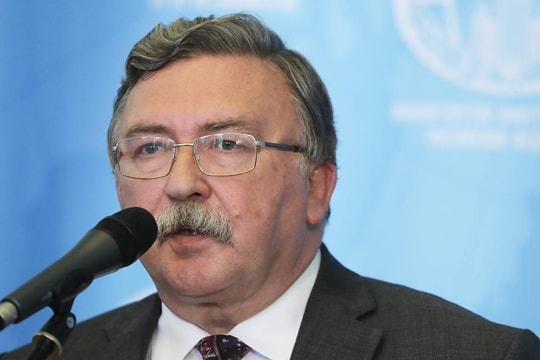US warns it will not retaliate with Israel against Iran after shocking attack
(Baonghean.vn) - President Joe Biden warned Prime Minister Benjamin Netanyahu that the United States would not participate in a counterattack against Iran, an option supported by Netanyahu's war cabinet after the drone and missile attacks on Israeli territory.
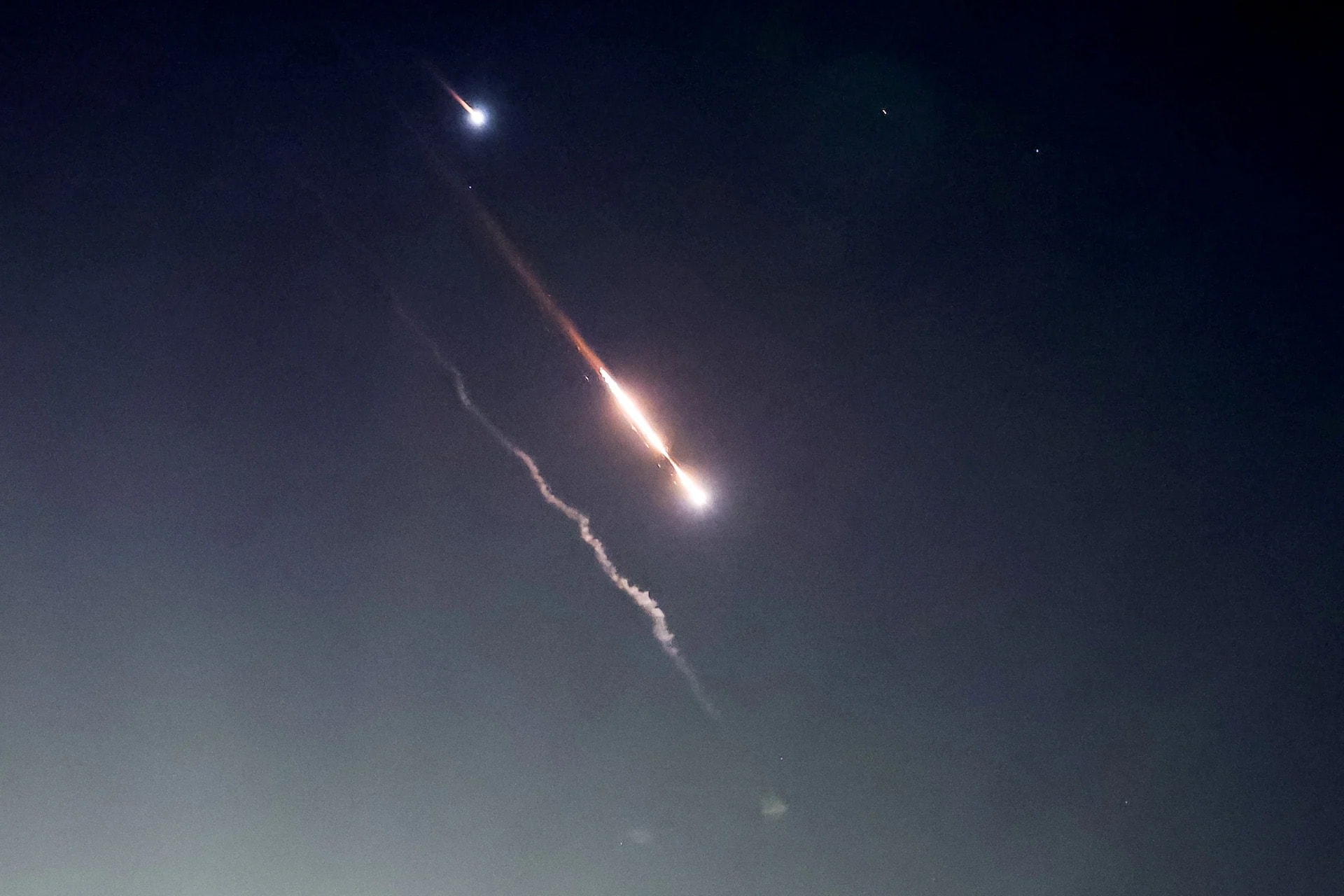
The real danger
The threat of open war between the Middle East's "arch-rivals" and the involvement of the United States has left the region on edge, with calls for restraint coming from global powers and Arab states.
UN Secretary-General Antonio Guterres told the Security Council on April 14: "The Middle East is on the brink of an abyss. People in the region are facing a real danger of a devastating all-out conflict. Now is the time to defuse tensions and de-escalate."
Deputy US Ambassador to the United Nations Robert Wood called on the Security Council to unequivocally condemn Iran's attack.
“Let me be clear: If Iran or its proxies take further action against the United States or against Israel, Iran will be held accountable,” he said.
However, a White House official said Mr. Biden told Mr. Netanyahu that the United States would not participate in any Israeli counterattack against Iran in retaliation for the attack.
US Secretary of State Antony Blinken and Secretary of Defense Lloyd Austin also spoke with their counterparts from Saudi Arabia, Turkey, Egypt and Jordan, stressing the need to avoid escalation, the importance of a coordinated diplomatic response and stressing that the US will continue to support Israel's defense.
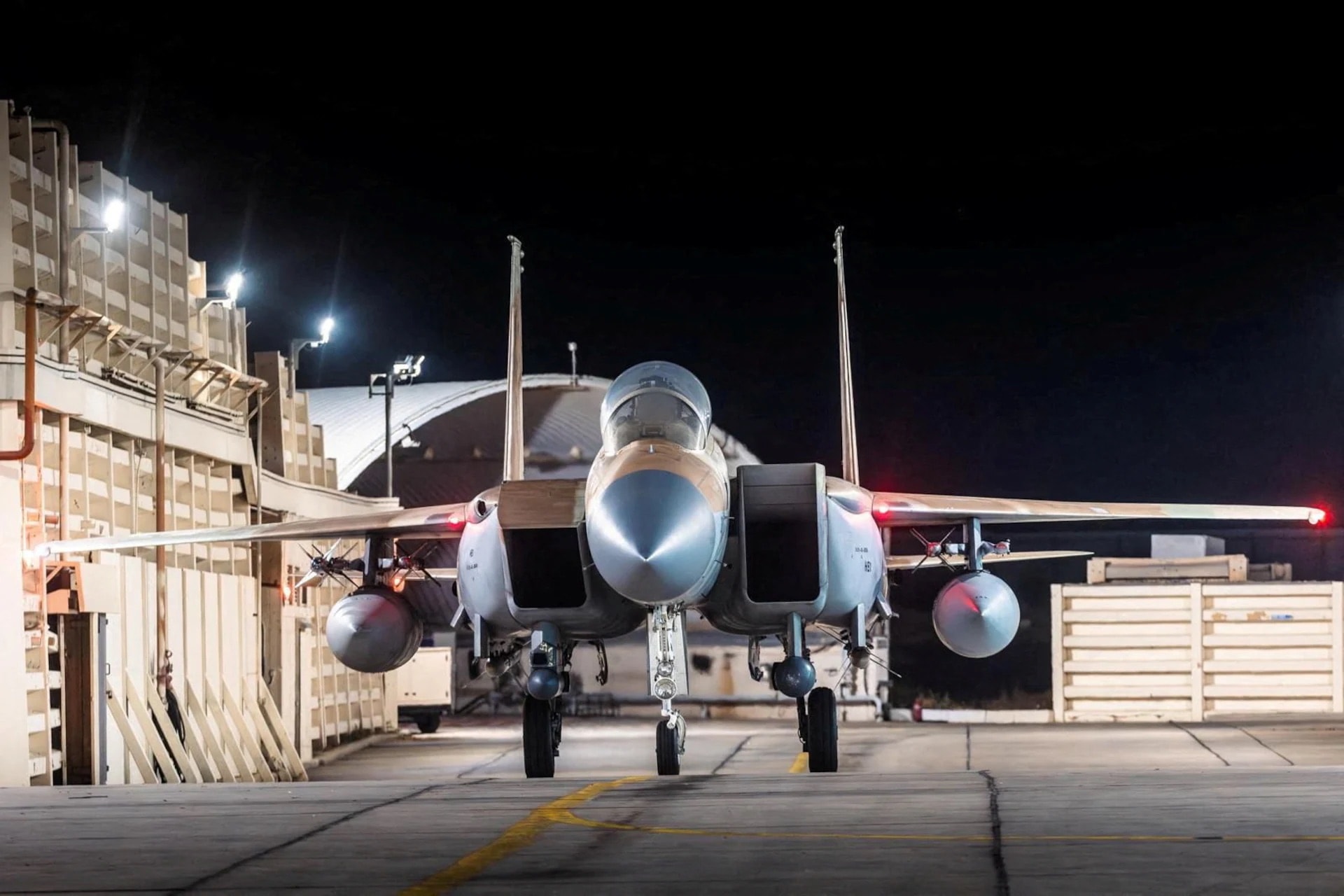
Little serious damage
Iran launched the attack after a suspected Israeli airstrike on its embassy compound in Syria on April 1 killed top commanders of Iran's Revolutionary Guards, according to Reuters. The Iranian attack also followed months of fighting between Israel and Iran's regional allies sparked by the Gaza war.
However, the attack, which used more than 300 missiles and drones, caused only modest damage in Israel. Most of the missiles and drones were shot down by Israel's Iron Dome defense system with the help of the US, UK, France and Jordan.
The only serious injury reported in Israel was a 7-year-old boy wounded by shrapnel.
There was also little serious property damage reported. An Israeli Air Force base was hit but continued to operate normally, authorities said.
Asian stock markets fell and gold prices rose on April 15 due to risk-off sentiment, while oil prices fell.
“You have to calculate the cost of launching an attack in the days before,” said Warren Patterson, head of commodity strategy at ING. “Also, the limited damage and the fact that there were no casualties means that the Israeli response may be more cautious. But clearly, there are still many uncertainties and it all depends on how Israel reacts now.”
Israeli officials said Netanyahu's five-member war cabinet supported retaliation at a meeting on April 14, although the team remained divided over the timing and scale of any such response.
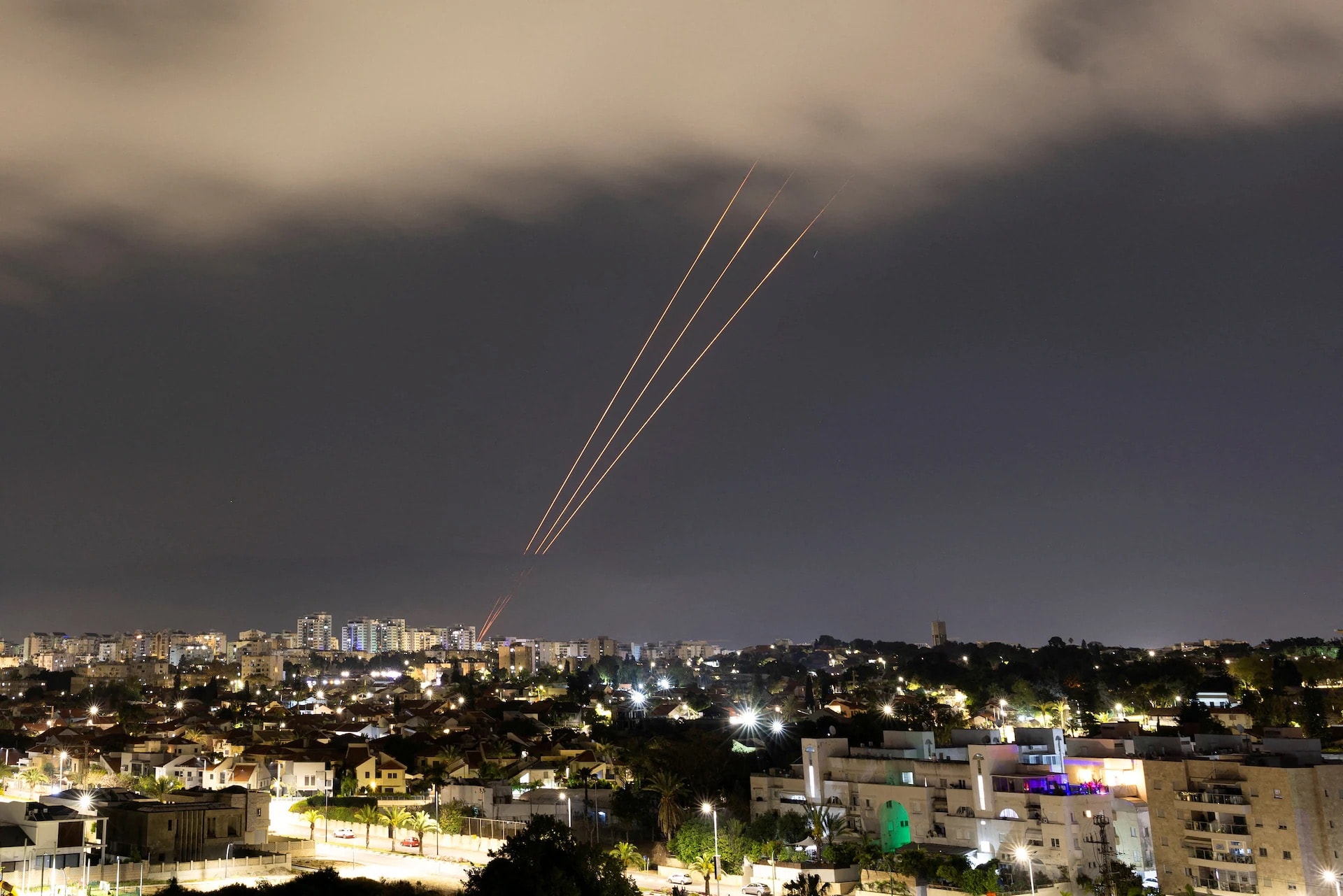
Two senior Israeli ministers signaled that retaliation would not come immediately and that Israel would not act alone.
“We will build a regional coalition and determine the price Iran must pay in a way and at a time that suits us,” centrist minister Benny Gantz said ahead of the war cabinet meeting.
Defense Minister Yoav Gallant also said that Israel has the opportunity to form a strategic alliance "against the serious threat from Iran."
Israel remains on high alert but authorities have lifted some emergency measures, including bans on some school activities and limits on the size of gatherings.
“If Israel retaliates against Iran, our response will be much greater than the military action tonight,” Iran’s army chief of staff, Major General Mohammad Bagheri, said on television, telling Washington that its bases could also be hit if it helped Israel retaliate.
Iranian Foreign Minister Hossein Amirabdollahian said Tehran had informed the United States in advance that the attack on Israel would be limited and self-defensive, and that neighboring countries in the region had been informed of its attack plans 72 hours in advance.
Turkish, Jordanian and Iraqi officials said on April 14 that Iran had given extensive notice days before the attack, but US officials said Tehran had not warned Washington and aimed to cause significant damage.
Leaders of the G7 group condemned Iran's attack and said they would work to stabilize the situation, warning in a statement that Tehran risked "uncontrollable escalation in the region".
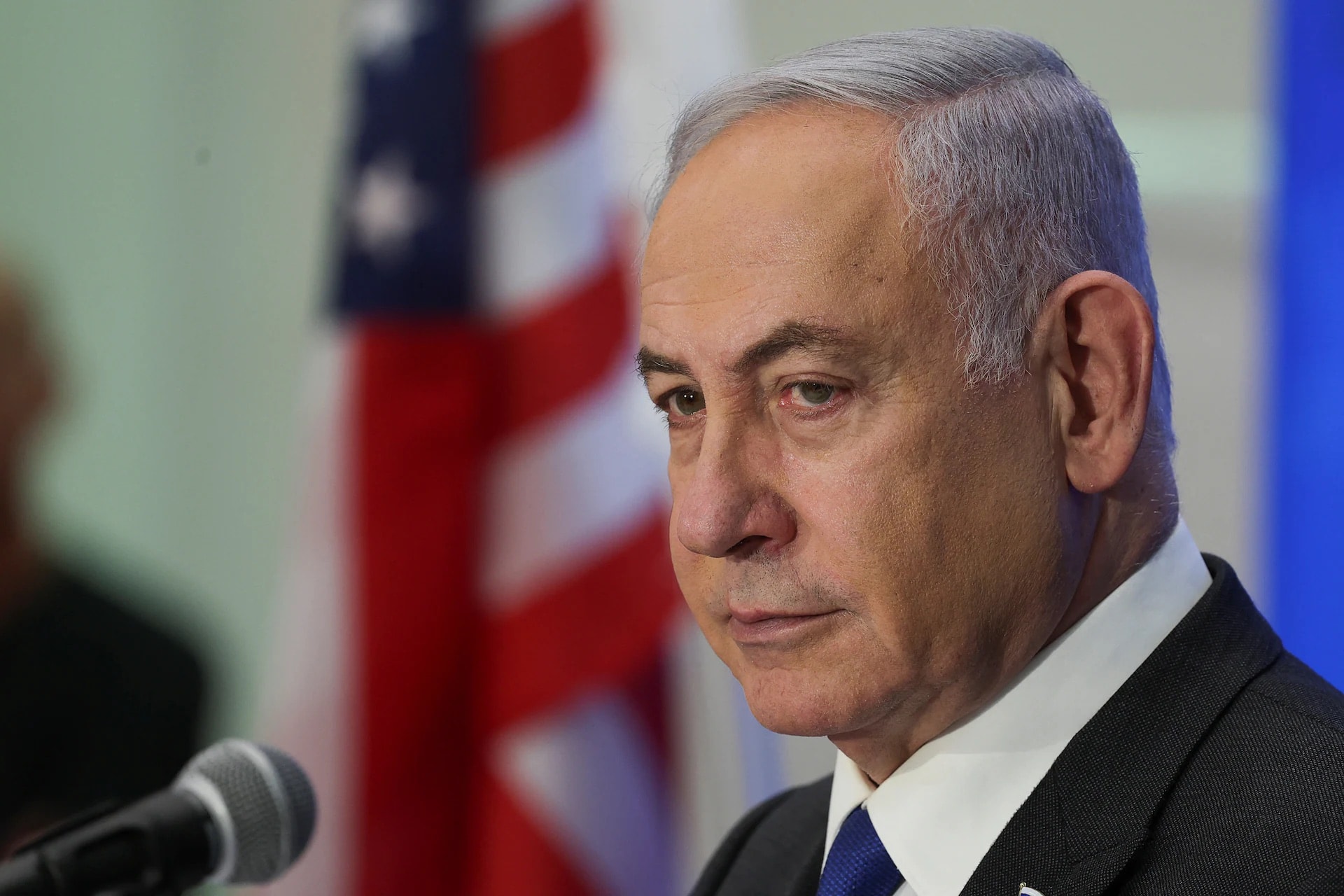
Controversial motive for the attack
Analysts debate whether Iran's attack was tailored to cause real devastation in Israel or to save face at home after vows of revenge while avoiding a new, full-scale war.
“I think the Iranians took into account the fact that Israel has a very powerful multi-layered anti-missile system and probably thought that there wouldn’t be too many casualties,” said Sima Shine, a former senior Mossad official who works at the Institute for National Security Studies in Tel Aviv.
In Gaza, Iran's attack has received praise as a rare response to an Israeli offensive that has killed at least 33,000 people.
“We have been massacred for more than six months and no one dared to do anything,” said Gaza resident Majed Abu Hamza. “Now Iran, after the consulate attack, is hitting back at Israel and this brings joy to our hearts.”
The war in Gaza, which Israel attacked after an October 7 offensive by the Iran-backed Hamas group, has spread to fronts with Iran-allied forces in Lebanon, Syria, Yemen and Iraq, Reuters reported.
In Israel, despite warnings of the first direct attack from another country in more than three decades, the mood was mixed with hurt after the Hamas-led attack on October 7.
“I think we’ve been given a license to respond now,” said Jeremy Smith, 60. “I mean, it was a major attack from Iran… I imagine Israel would respond and be able to quickly get it over with and get back to normal life.”
In Iran, state television showed small gatherings in several cities celebrating the attack, but some Iranians worried about Israel's reaction.
“Iran has given Netanyahu a golden opportunity to attack our country. But we, the Iranian people, will suffer the consequences of this conflict,” said Shima, a nurse from Tehran.

